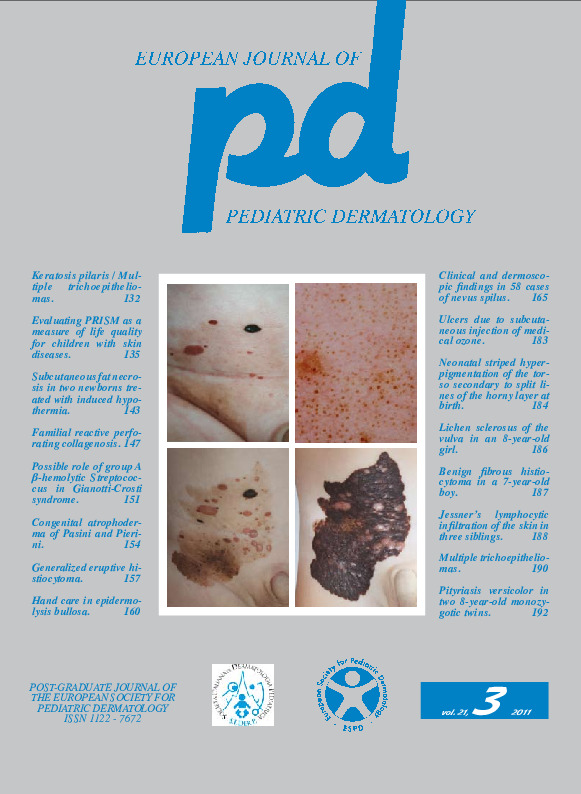Evaluating PRISM (Pictorial Representation of Illness and Self Mea-sure) as a measure of life quality for children with skin diseases.
Downloads
How to Cite
Melbardis Jørgensen K., Jemec G.B.E. 2011. Evaluating PRISM (Pictorial Representation of Illness and Self Mea-sure) as a measure of life quality for children with skin diseases. Eur. J. Pediat. Dermatol. 21 (3):135 -42.
pp. 135 - 142
Abstract
Background: Changes in Quality of Life (QoL) are increasingly being used as an outcome measure in dermatology. For pediatric dermatology this poses special problems due to the natural cognitive development of the patients. QoL is mostly assessed using questionnaires. The use of a non-verbal instrument may therefore be of particular relevance to pediatric patients.Purpose: To evaluate PRISM (Pictorial Representation of Illness and Self Measure) as a non-verbal measure of QoL for children with skin diseases compared to CDLQI (Children's Dermatology Life Quality Index) and the possible influence of age-dependant cognitive development on children's self-reported QoL.
Methods and materials: A total of 43 children of both sexes aged 5-16, with a diagnosed dermatologic disease were asked to complete both PRISM and CDLQI. Children with a mental handicap, children who did not speak Danish or who were too shy to participate were excluded.
Results: Significant differences were found between PRISM and CDLQI (p<0.001) and their correlation was weak (r= 0,105). A better correlation was found in older children. Children used less time finishing PRISM than CDLQI. The majority of the children preferred CDLQI over PRISM.
Discussion: The use of PRISM to evaluate QoL in children does not correlate well with the questionnaire based CDLQI. Each approach may have its weaknesses based on cognitive development. It is speculated that the non-verbal PRISM is too abstract for children. Concepts used in the CDLQI may similarly be too abstract. This pilot study highlights the need for a reliable measures of QoL in the pediatric population.
Keywords
Quality of Life, PRISM, CDLQI, Cognitive development

